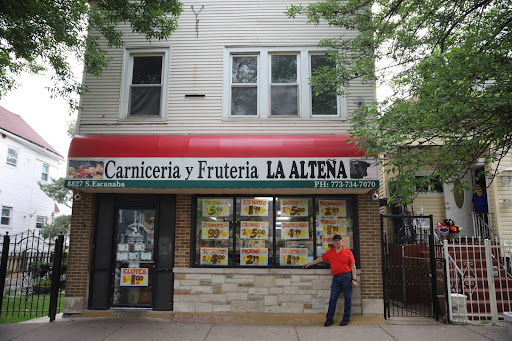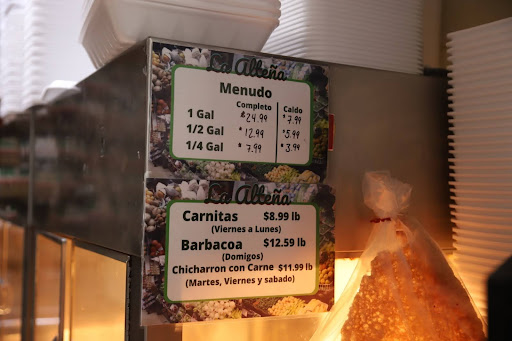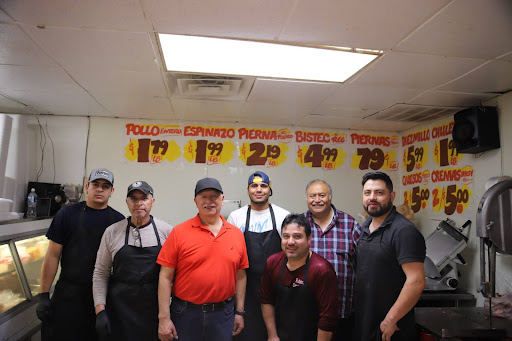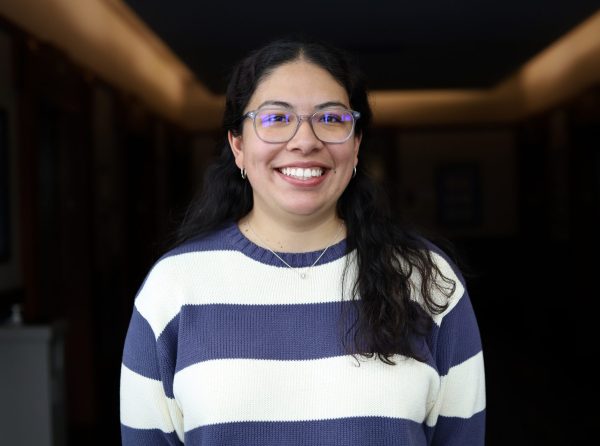Walking from 88th Street onto Escanaba Avenue in South Chicago, La Alteña, a carniceria or butcher shop, is in the middle of the block on the first floor of a house.
More than 40 years ago, Francisco Espinoza opened a Mexican grocery store that sells meat and other produce. With no experience as a business owner, he knew he had to learn a lot to have a thriving carniceria.
“Para seguir adelante” was Espinoza’s mentality and goal throughout his life. “To keep moving forward.”
The 1,848-square-foot grocery store was originally owned by a Polish family who ran a dairy and meat store. Because of the store’s history, Espinoza wanted to continue the legacy.
Espinoza came to the United States from Guanajuato, Mexico, at the age of 16. Inspired by his friends’ success in California, he decided to do the same.
At first, his parents encouraged him to stay in school and pursue a career in Mexico. However, his mother eventually gave him her blessing as his desire to move to the U.S. grew.
“Desde niño, yo pensaba que yo iba ser algo,” Espinoza said in Spanish. “Since I was a child, I thought I was going to do something.”

He first worked multiple factory jobs in the 1970s after arriving in the United States. Espinoza initially planned to open a mechanic shop, but then his brother-in-law suggested they open a grocery store together.
So he took the opportunity and “was dedicated (to it) 100 percent.”
The father bought the building where the previous store was already located. He and his wife raised their kids on the second floor, above the store, for about 13 years.
Eventually they decided that he would take on the majority of the work at the store while his wife took care of their four children.
Many times, he said, he had to sacrifice special moments with his family to run his business instead. .
As Espinoza continued his grocery business, he asked the people in the community what products they liked to understand what they needed, he said. In doing so, he became a well-known figure in the area.
During his time living in the neighborhood, Espinoza said the area was a “disaster.”
He noticed a lot of gang violence and would often hear gunshots, which made him consider closing the store.. However, he decided to stay for the customers in his community and people struggling with access to food and other Mexican products.
He said he never considered moving La Alteña to another location despite turmoil in the area.
“Why move what is working?” Espinoza said.
Parts of the South and West sides of Chicago are notable food deserts, which are areas that have limited access to healthy food or are overpriced.
Since La Alteña is on the South side of Chicago it is particularly important to this neighborhood, many customers said. The community is home to many Black and Latine families who might not have access to grocery store chains nearby with affordable fruits, vegetables and other essential Latine household items.
Omar Valdivia, an employee at La Alteña, calls Espinoza “Don Pancho.” He said Don Pancho makes him feel like family and treats the workers well.
Before Valdivia came to the United States, he said his older brother had been working at La Alteña for a while. His brother told him that, if he came to Chicago, he was guaranteed a job there. Valdivia started working part-time at age 15, expecting to stay for a year, and has now been with the store for 24 years.
He said he enjoys getting to know La Alteña’s regular customers and keeps up with their lives.
Every Tuesday, for example, he knows a certain elderly customer will call to make her order.
Antonio Ramirez, who is a frequent customer, has been going to La Alteña with his son Ricardo Ramirez since he was a kid.
While living on Chicago’s South Side for some years, a friend had recommended Antonio go and purchase his meat there, and that’s how he found La Alteña.
He remembers Don Pancho offering what he could – even opening the store early, when he was young to let him choose carnitas before other customers came in.
His customers said Espinoza would sometimes lend them money, cashed checks for those who couldn’t afford going to regular currency exchanges and even offered them a line of credit.
With a grocery store a block away that offered so much more than just food products, the Ramirez family didn’t consider going anywhere else.

Ramirez and his son continue to go to La Alteña even after moving to Calumet City. “Si tiene buena carne, pero al mismo tiempo, el hizo su raya por su personalidad. Por eso mucha gente siempre va para atrás,” Ricardo said. “He sells good meat, but at the same time, he made himself known by his personality. That ‘s why a lot of people still come back.”
Espinoza wants his store to continue operating in the neighborhood even after he’s gone.
He said he’s happy with the life he’s built in the United States, with himself, his family, and his business.




